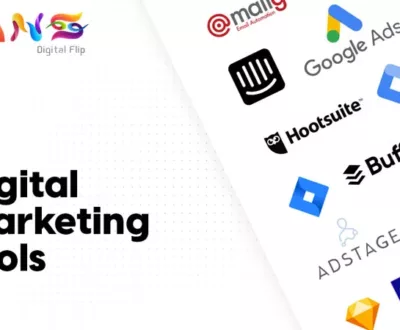
Keyword research plays a major role in any SEO strategy. Researching the keywords is a crucial part of SEO and content creation. That’s not all, it even helps with email marketing campaigns. But with so many tools, so many metrics, and just SOOOO many keywords, it can be hard to choose a single campaign.
Expert SEO marketers even take customer behavior into the mix while researching keywords. Plus, Google has made some changes in user search guidelines in the last few years. These act as a barrier too while researching keywords.
We sat down with our SEO team and wrote down all the points and factors they consider important while doing keyword research. Are you ready to learn? Let’s get started.
What Are Keywords?
Keywords are any word, phrase, or question that people search for online. From an SEO marketer or content writer’s perspective, keywords are the phrases and words that describe your topic.
Keywords are used in content as they help users find the information they’re searching for.
Keyword research includes finding the best terms that people are searching for online. You can use these terms in web pages, content creation, and marketing.
Why Keyword Research?
Without keyword research, there’s no SEO. Keywords are the biggest ranking factor that Google uses to rank your content. If you can get them right, Google will be able to understand what your content is about, and where it stands among other content. Whenever users search for these keywords, Google will make sure your content comes up.
Keyword research allows you to reach out to your target audience by finding topics that would fit your content strategy. Once you figure out your target audience and what they need, you’ll be able to generate a proper content strategy.
Overall, keyword research is needed to create content, promote products and services, conduct other marketing activities, etc.
You can also check out the competitor’s keyword research strategies. It will help you refine your own content strategy.
Is Keyword Research Still Relevant in Changing Search Environments?
A lot of marketers wonder if it’s worth doing keyword research even today. Yes, it is absolutely necessary.
In the early days of SEO, marketers, and writers used to stuff the content with a lot of keywords to try to rank the content on top. The quality of the content used to be the second priority compared to keyword density.
SEO has changed now. The keyword-stuffing approach no longer works. As a matter of fact, Google and other search engines penalize activities like these. Google always keeps changing its algorithm to improve the user experience, but one thing is for sure, keyword stuffing is not a good idea.
Other things to keep in mind while doing content research include:
- People are using smartphone digital assistants (Siri, Alexa, Google Assistants, etc) to search by voice. So, most of the time they use natural language to ask questions online.
- Google tries to bring up answers for commonly asked questions with “Answer Boxes.” SEO markers can try to rank on these answer boxes. It can only be done if your content is well-optimized and relevancy to the content.
- You should also start targeting semantically related keywords. These are basically the same keyword but phrased in a completely new way.
What Are the Type of Keywords?
To do keyword research, you need to have a proper understanding of the type of keywords, and how you can classify them.
You can classify keywords into 3 categories:
- Head keywords
Head keywords are usually made up of 2-3 words and have a high search volume.
- Body Keywords
Body keywords have 2-3 word phrases and they have a great search volume. It’s not too high, and not too low.
- Long Tail keywords
These keyword types are usually long questions that users search for. Their search volume is low, but these keywords make up the bulk of traffic online.
Here’s an infographic by Backlinko.com that may help you understand the importance of specific keyword types.
When it comes to consumers, the more search context a search query has, the more likely it is to get results from these keywords.
Latent Semantic Indexing
Another common term that you’ll hear during content research is semantic keywords. These keywords are basically a search engine’s way to do word association. Search engines try to guess what a user is searching for by showing recommendations.
The LSI helps search engines provide more relevant results. SEO marketers, on the other hand, can use these keywords to make their content more relevant to a user’s search intent.
We did a search for keyword research above, and Google came back with a range of suggestions.
If you want to add LSI keywords to your content, then Google’s search suggestion is a great option. There are other LSI tools in the market if you want more control.
What is Keyword Intent? Understanding Search Intent
Every marketer needs to understand that it’s not enough to understand whether the keywords are short, medium, or long-tail. To make sure you utilize the keywords in the best way possible, you also have to consider the user’s search intent.
Every marketer has a different understanding of the user’s search intent. You can basically break down the search intent in 4 ways:
- Navigational: It’s where users search for a particular website.
- Informational: It’s where the users search for the answer to questions.
- Investigational: It’s when the users search for information that may eventually lead to a transaction.
- Transactional: It’s when users are ready to buy something and are searching for it.
How to Do Keyword Research?
Keywords need to meet your needs and your searchers. While they mean the same thing, you need to include keywords in your content and make sure users come to your website and convert into paying customers.
So, how do you find keywords that help you earn money? The first thing is “Brainstorming.”
If you have a good understanding of your niche, then you can figure out the information that users often search for. This should be your starting point while doing keyword research. It’s a good idea to make a list of all the ideas you come up with.
You should also think about “seed keywords.” Seed keywords are small phrases that don’t have a modifier. For example, “keyword research” is a seed keyword, while “free keyword research tools” is a long-tail keyword.
You can also use Google Analytics to see which specific terms are bringing users to your website. You can use these keywords as inspiration to include long-tail keywords in your content.
If you want to find keywords in Google Analytics, go to acquisition> all traffic> channels and click on Organic Search.
You’ll be able to see a list of phrases on Google Analytics. However, the largest group will be “Not Provided,” which are search results from encrypted browser searches.
There are some other places you can try to find keyword ideas, including:
- Blog comments. Make notes when users ask for information about particular topics.
- Social media hashtags are also a type of keyword. Keep an eye out for hashtags people use when they share your content.
- Book titles and categories on Amazon.
If you have a local business, then you should also target local keywords. Local keywords have some place or some location as a modifier. “Car Accident Attorney in San Francisco” is an example of a local search query.
Best Keywords Research Tools
There are tons of keyword research tools available online. All of these keywords use different methods and metrics to show you data. The most common metrics include:
- Search volume
- Ranking difficulty
- Keyword value
- Competition
Based on all of this, we’ve created a list of our top 5 keyword research tools:
- Ahrefs
Ahrefs is a market-leading SEO tool. It includes a range of keyword research and content SEO tools.
- Answer the Public
Answer the Public is a lesser-known keyword research tool. It breaks down the search results by the type of question. It allows you to target customers on the basis of questions, and type of questions.
- Google Adwords Keyword Planner
Google Adwords is the best keyword research tool for beginners. It lets you evaluate monthly global and local search volumes for keywords, competition levels, and estimated CPC. The best part is that the tool is completely free.
To access the Google Adwords keyword planner, follow these steps: Search for Google Adwords, click on the first link that comes up, log in to your Google Account, and you’ll be able to access the tool.
- SEMrush
SEMrush ranks right next to AHREFS when it comes to SEO tools. It has an incredible keyword research tool. You can find keywords related to your main keyword. SEMrush has a lot of other tools to offer, and if you want you can get a 7-day free trial.
- Ubersuggest
Another great keyword research tool is Ubersuggest. Owned by Neil Patel, the tool has an intuitive UI, and it offers a comprehensive keyword report. You can sort by volume, keyword difficulty, and others.
Where Should I Use Keywords In the Content?
Now that you have all the right keywords you want, all you need to do is get some amazing content created around them. Every SEO marketer needs to have a basic understanding of how to optimize content with keywords. Here are some places you can include keywords in your content.
- Page Title
This includes both page title and SEO title Even if both of them are different, you should try to include your main keyword. The title is the first place where Google determines the relevancy of the content.
- Meta Description
If you don’t use an SEO tool, then here’s a helpful tip. You need to include your primary keyword in the meta description. The ideal length for your meta description is between 120-160 characters. So, make sure that you can utilize this space.
- Links and Social Media Updates
If you’re sharing your content on social media as well, then you should try to include your keyword in a hashtag. This also makes it easier for users to find answers to their search queries easily.










